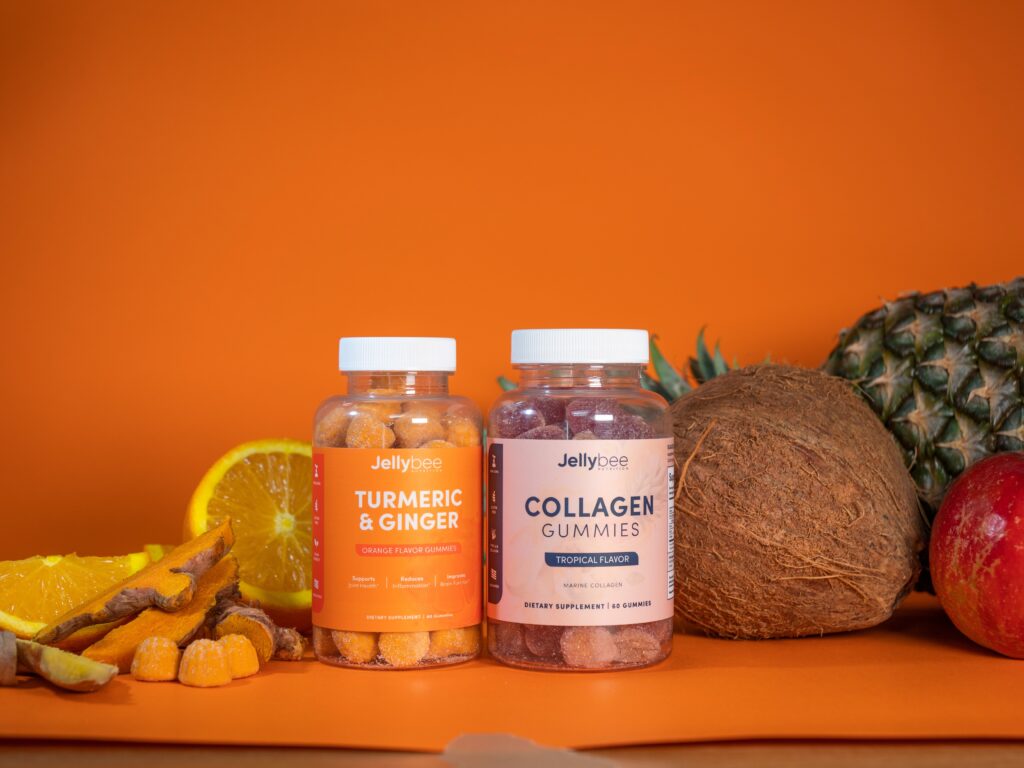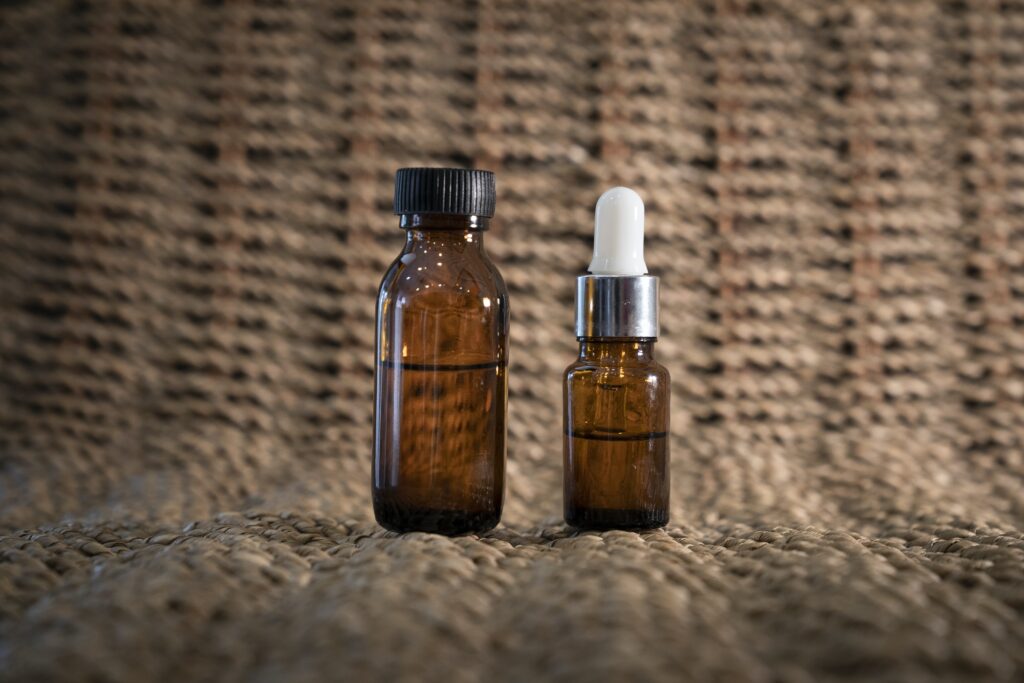



This image is the property of www.health.com.
Looking to boost your skin health? Look no further than the world of collagen-rich foods. Collagen, a protein found in our bodies, plays a crucial role in supporting the health of our skin, bones, muscles, tendons, and ligaments.
However, as we age and our skin is exposed to UV rays, collagen production naturally declines. But fear not! By incorporating a variety of delicious and nutritious foods into your diet, you can help prevent collagen deficiencies and reap the benefits of healthy, glowing skin.
From bone broth and fish to citrus fruits and dairy products, there are plenty of collagen-packed options to choose from. So why not indulge in these collagen-rich delights and give your skin the love and care it deserves?
Foods High in Collagen
Collagen, as we know, is a vital protein that supports the health of our skin, bones, muscles, tendons, and ligaments. Unfortunately, as we age and expose ourselves to harmful UV rays, our collagen production naturally declines.
However, incorporating foods high in collagen into our diet can help prevent collagen deficiencies and maintain the overall health and elasticity of our body.
Bone broth
When it comes to collagen-rich foods, bone broth is a true superstar. It is hailed as one of the best sources of collagen due to its high concentration of amino acids, including glycine, proline, and arginine. These amino acids play a crucial role in stimulating collagen production and strengthening the connective tissues in our body. Additionally, bone broth is also packed with other essential nutrients like calcium, magnesium, and potassium, making it a powerhouse of health benefits.
Fish
If you’re a seafood lover, you’re in luck! Fish, particularly the skin and scales, is a great source of collagen. The skin of fish contains abundant amounts of type I collagen, which is the most prevalent form of collagen found in our body.
Incorporating fish into our diet can provide us with the necessary amino acids to support collagen synthesis and improve the health of our skin, hair, and nails. So next time you’re preparing a meal, consider adding some delicious salmon or mackerel to boost your collagen intake.
Chicken cartilage
Chicken cartilage is another natural source of collagen that can easily be incorporated into our diet. It contains type II collagen, which plays a crucial role in maintaining the health of our joints and preventing joint pain and inflammation.
By consuming chicken cartilage, we can provide our joints with the necessary nutrients they need for optimal function. So the next time you have a chicken meal, don’t forget to include the cartilage for an extra collagen boost.
Beef bones
Similar to chicken cartilage, beef bones are also a natural source of collagen, particularly type I and type III collagen. These collagen types are vital for maintaining the elasticity and strength of our skin, bones, and connective tissues.
Including beef bones in our diet, whether through beef bone broth or slow-cooked dishes, can provide us with the necessary collagen to support the health and integrity of our body.
Egg whites
Egg whites are not only a delicious addition to our breakfast but also a great source of collagen-promoting nutrients. They contain an amino acid called proline, which is an essential building block for collagen production.
Proline plays a key role in the synthesis of collagen, helping to support the structure and function of our connective tissues. Adding egg whites to our diet can provide us with ample amounts of protein and contribute to maintaining healthy collagen levels in our bodies.
Citrus fruits and berries
When it comes to promoting collagen synthesis, vitamin C is our best friend. Citrus fruits such as oranges, lemons, and grapefruits, as well as berries like strawberries and blueberries, are high in vitamin C. This essential vitamin acts as a cofactor in collagen synthesis, helping to convert the amino acids into collagen fibers. Including these fruits in our diet not only provides us with vitamin C but also other beneficial antioxidants that contribute to overall skin health and collagen production.
Garlic
Garlic has long been known for its numerous health benefits, and the promotion of collagen production is one of them. Garlic contains sulfur compounds that support collagen production and prevent collagen breakdown.
These compounds help maintain the integrity of collagen fibers and promote the synthesis of new collagen. So adding garlic to our meals not only enhances the flavor but also supports our body’s collagen production and overall health.
Dairy products
While dairy products may not directly provide collagen, they indirectly support collagen production due to their rich content of essential amino acids. Amino acids such as lysine and glycine are crucial for collagen synthesis, and dairy products like milk, yogurt, and cheese are excellent sources of these amino acids. By including dairy products in our diet, we can provide our body with the necessary building blocks for collagen production and maintain its overall health and integrity.
Cashews, pork rinds, and oysters
If you’re looking for some unconventional sources of collagen, cashews, pork rinds, and oysters might pique your interest. Cashews are rich in copper, which is an essential mineral for collagen synthesis. Copper acts as a cofactor to the enzyme responsible for cross-linking collagen fibers, ensuring their strength and integrity.
Pork rinds, on the other hand, are high in glycine, an amino acid necessary for collagen production. Lastly, oysters are a great source of zinc, which plays a crucial role in collagen synthesis and wound healing. So, consider adding these unique foods to your diet for a collagen boost.
Benefits of Collagen Intake
Now that we know which foods are high in collagen, let’s delve into the incredible benefits that collagen intake can offer. From promoting skin health to improving joint pain, collagen plays a vital role in various aspects of our well-being.
Skin health
Collagen is often associated with skin health, and for good reason. It contributes to the elasticity, hydration, and overall appearance of our skin. As we age, collagen production naturally declines, leading to common signs of aging such as wrinkles, sagging, and dryness.
By incorporating collagen-rich foods into our diet, we can support the production of collagen in our body, which in turn helps maintain the youthful appearance of our skin and reduce the signs of aging.
Joint pain
Joint pain is a common issue that many people face, especially as they age. The decline in collagen production can contribute to joint deterioration, leading to discomfort and reduced mobility.
However, by consuming collagen-rich foods, we can provide our joints with the necessary nutrients to maintain their health and reduce inflammation. This can potentially alleviate joint pain and improve overall joint function.
Heart health
Collagen not only benefits our skin and joints but also plays a role in maintaining heart health. Collagen provides structural support to our blood vessels, helping them maintain their integrity and elasticity.
This, in turn, promotes healthy blood flow and prevents the development of conditions such as atherosclerosis. By incorporating collagen-rich foods into our diet, we can support cardiovascular health and reduce the risk of heart-related issues.
Muscle mass
Collagen is not only important for the health of our skin, bones, and joints, but also for maintaining muscle mass. As we age, our muscle mass naturally declines, leading to decreased strength and mobility.
Consuming collagen-rich foods can help stimulate muscle protein synthesis, supporting muscle growth and maintenance. This can be particularly beneficial for individuals who engage in regular exercise or are looking to preserve their muscle mass as they age.
Bone health


This image is the property of www.health.com.
Collagen plays a crucial role in maintaining the health and strength of our bones. It provides the structural framework for our bones and ensures their integrity. As we age, collagen levels decrease, leading to a higher risk of bone fractures and osteoporosis.
By incorporating collagen-rich foods into our diet, we can promote bone health and reduce the risk of bone-related issues. This becomes particularly important for individuals at a higher risk of osteoporosis, such as postmenopausal women.
Collagen Intake: Dietary vs. Supplements
Now that we understand the benefits of collagen intake, let’s explore the different ways we can incorporate collagen into our routine. We have two primary options: dietary collagen and collagen supplements.
Dietary collagen
Including collagen-rich foods in our diet is a natural and effective way to obtain collagen. By consuming foods such as bone broth, fish, chicken cartilage, and egg whites, we can provide our body with the necessary building blocks for collagen synthesis.
The advantage of dietary collagen is that it not only provides collagen but also other essential nutrients and antioxidants that contribute to overall health. Additionally, dietary collagen is more easily absorbed and utilized by our body compared to supplements.
Collagen supplements


This image is property of images.unsplash.com.
Collagen supplements, such as collagen powders and capsules, have gained popularity in recent years. These supplements are usually derived from animal sources such as bovine or marine collagen and provide a concentrated dose of collagen peptides.
Collagen supplements can be a convenient option for individuals who may not consume enough collagen-rich foods in their diet or find it challenging to incorporate them regularly. However, it’s important to note that the absorption and effectiveness of collagen supplements may vary based on individual factors
Consulting with a healthcare professional is recommended before starting any new supplements.
Conclusion


This image is property of images.unsplash.com.
Incorporating collagen-rich foods into our diet can have numerous benefits for our overall health and well-being. From promoting skin health to supporting joint function and heart health, collagen plays a vital role in the maintenance and integrity of our body.
By opting for collagen-rich foods such as bone broth, fish, and chicken cartilage, we can ensure an adequate supply of collagen and other essential nutrients. Additionally, dietary collagen is more easily absorbed and utilized by our body compared to supplements.
However, collagen supplements can provide a convenient option for those who may need an extra boost. Ultimately, finding the right balance and incorporating collagen into our routine can help us enhance our natural glow and promote long-term health.







